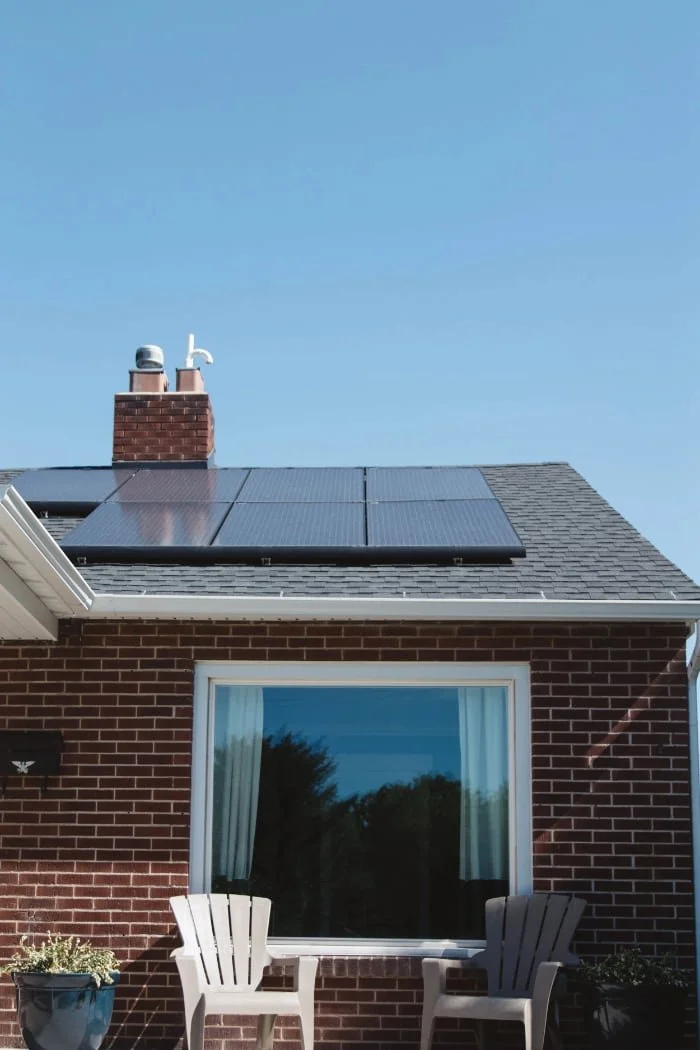SUSTAINABLE HOME RENOVATIONS
When considering renovating to create a sustainable home, you need to ensure the work that you’re undertaking is going to improve the operations of the house without compromising the wellbeing of future generations. Progress in the past has proven to be detrimental to our environment. Wastage of water and electricity, using dangerous materials for building and removing trees are just some of the challenges that have impacted our environment. There are many ways to transform your home while guaranteeing your renovation is environmentally responsible with the added bonus of being cost-effective as well!
Heating & Cooling
The heating and cooling of your home can be expensive but there are methods that can provide a comfortable temperature without having to automatically turn to gas or electrical heating. The burning of fossil fuels when using artificial heating sources produces greenhouse gases that trap heat in the atmosphere. This carbon dioxide has an effect on our climate, therefore minimising the use of these energy sources can be positive for future generations and the sustainability of your home. Adding insulation to the walls, floor and roof space will create a barrier to prevent the movement of heat in or out of your living areas resulting in reduced heat flow. This subsequently makes your living spaces cooler in summer and warmer in winter.
Doors & Windows
Doors and windows should be well sealed to prevent drafts and consider tinted glass or double-glazed windows to prevent heat reflection and provide a barrier from the elements. Adding block out blinds or window shutters protects the interior of your home from sun damage as well as keeping your home cool in summer and protection in the cooler months.
Power
Unless you are living completely off the grid, most families require electricity for appliances and lighting so choosing energy-efficient appliances will reduce cost as well as carbon emissions. LED lighting is energy-efficient, non-toxic and fewer bulbs are required due to the quality of light distribution and their longer lifespan. Using a dimmer can also help extend their duration, reducing the need to replace LEDs and further saving on packaging and landfill.
If you choose to add solar panels to your home, you can start obtaining your energy from the sun. Energy companies are working to provide a solution to support the reduction of emissions and offer buy-back deals & rebates to the grid which helps maintain affordability. When installing solar panels, ensure they are placed in the area (usually on the roof of your home) where the sun is at its longest throughout the day. Also, remember they need to be kept clean to work efficiently!
Water
Replacing leaky taps is a simple yet significant water-saving technique to prevent wastage. Water restrictions are not uncommon in NSW making water a precious commodity. By reducing the amount of water usage, less water is drained from our waterways enabling wildlife and forests to regenerate. Toilet cisterns also use a lot of water and installing a low flush toilet will save litres of water per day. Australians use most of their water through toilets, washing machines, showers and irrigation. When purchasing appliances for any of these uses, check the WELS label. This stands for Water Efficiency Labelling and Standards and provides the consumer with a star rating for water efficiency as well as the rate of water consumption, such as litres per flush or litres per wash depending on the item.
Installing an irrigation system with a timer also allows you to monitor water consumption in the garden. Using native plants for your area will mean less watering for your garden and create a safe habitat for the local wildlife.
Materials
The Forest Stewardship Council (FSC) is a global not for profit group that sets the standard for indicating to the consumer where to purchase products that have been built using wood from responsibly managed forests. Many Australian businesses are joining this organisation to help you to find products and materials that are resourced using the FSC standards. Finding these products is easy by looking on their website or searching for items that have the FSC label.
With consumers becoming more aware of the benefits of sustainability for our environment, businesses are turning to resources to become environmentally conscious of their purchasing practices and are moving towards suppliers who are aware of the benefits to ensure a healthy future for us all.
Sustainable homes are something that is very important to us here at Dependabuild. We’d love to chat and find out how we can make your new home build or home renovation sustainable!



